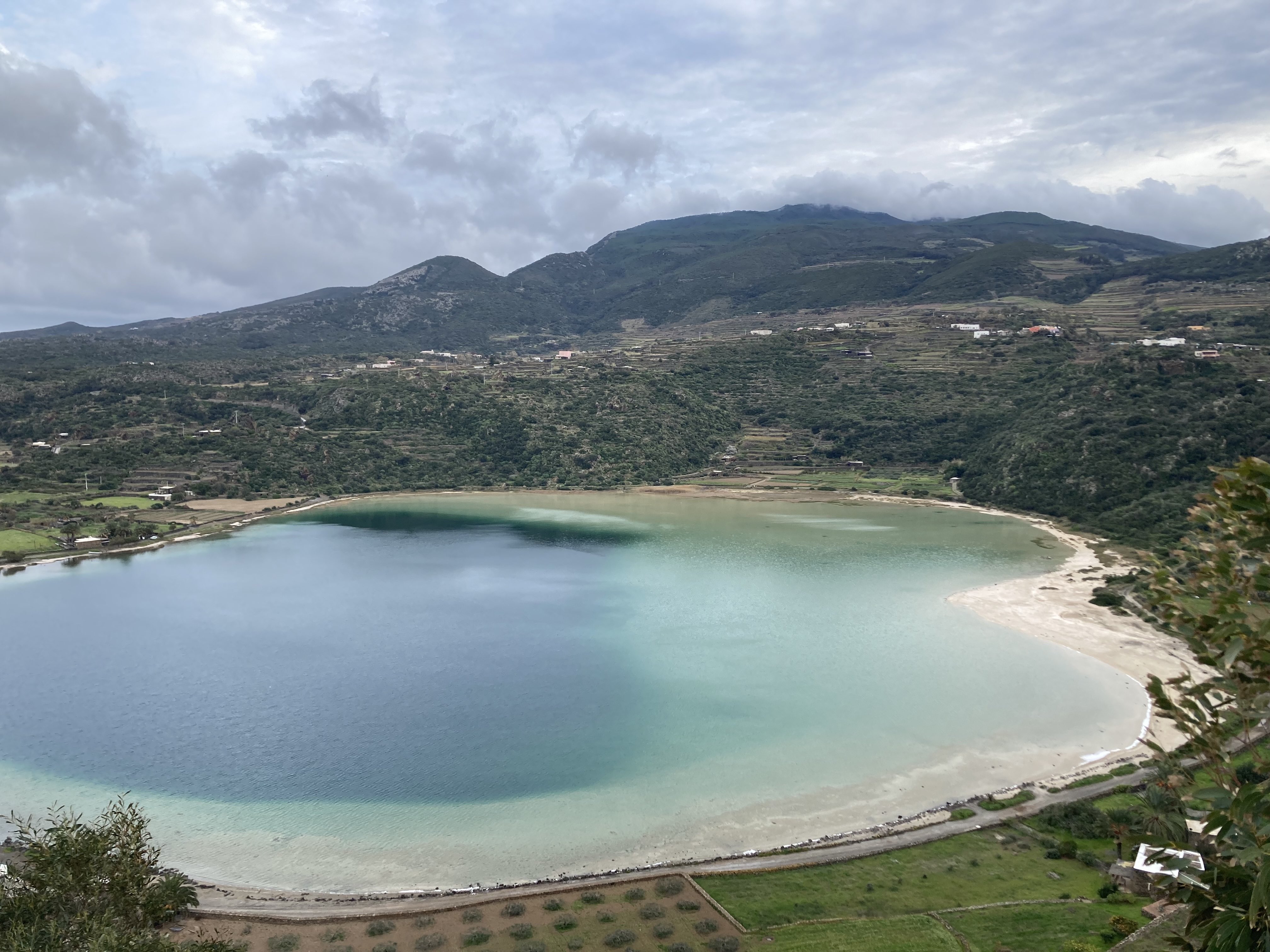Modern Lacustrine Microbialites and sediments from Lake Specchio di Venere, Pantelleria Island, Italy

© Nina Zeyen
Lake Specchio di Venere, an active volcanic lake, provides an ideal system for studying microbialites. The very high concentrations of dissolved ions and minerals in hydrothermally active volcanic lakes create favorable conditions for microbial mat development. Exploring modern microbialites in these lakes, including their formation mechanism, associated microbial communities, and environmental conditions, can give insights about the (biotic or abiotic) processes and environmental conditions of ancient microbialites formation. Given the significance of this lake and the microbialites, this project aims to comprehensively characterize the entire lake system, i.e., microbialites (both living and non-living), associated sediments, lake water, sediments cores, pore water, and country rocks surrounding the lake. The objective is to understand the specific roles of microbial communities and the impact of environmental factors such as hydrothermal activity, water chemistry, and nutrient availability, on the formation, composition and growth of microbialites. Additionally, this study also aims to investigate the influence of early diagenesis on mineralogy and biosignature preservation. In addition to thorough field investigations, various experiments and diverse analytical techniques (XRD, ATR-FTIR, XRF, SEM-EDX, ICP-MS, ICP-OES) will be employed. Advanced techniques such as TEM for nanoscale characterization of (mineral) phases, synchrotron based STXM for speciation of elements down to the nm-scale and SIMS for isotopic analyses will also be performed. The results from this study are expected to significantly contribute to our understanding of Earth’s early life and environment.
PhD project: Bhagyashree Mishra
